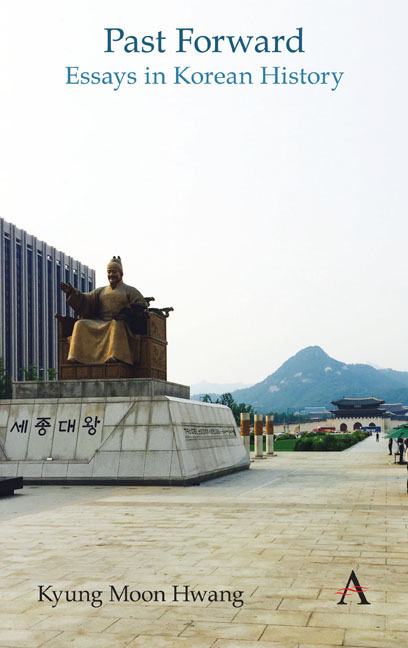Book contents
- Frontmatter
- Contents
- List of Figures
- Foreword
- Chronologies of Korean History
- Themes
- Acknowledgments
- Note on Romanization and Spelling
- Part I Circulating History
- Part II Durable Traditions
- Part III Ancient Remains
- Part IV Dynastic Depths
- Part V Modern Origins
- Part VI Challenges of Nationhood
- Part VII History Makers
- Part VIII External Presences
- Part IX Trials of Modernization
- 62 Summer Symmetries
- 63 The Korean War as a Turning Point
- 64 The Students of April
- 65 The Four Ds of South Korean History
- 66 Two Assassinations
- 67 Roads to Revolution
- 68 Dramatizations of the Gwangju Uprising
- 69 The Great Labor Uprising of 1987
- Part X Gripped by the Past
- Index
63 - The Korean War as a Turning Point
from Part IX - Trials of Modernization
- Frontmatter
- Contents
- List of Figures
- Foreword
- Chronologies of Korean History
- Themes
- Acknowledgments
- Note on Romanization and Spelling
- Part I Circulating History
- Part II Durable Traditions
- Part III Ancient Remains
- Part IV Dynastic Depths
- Part V Modern Origins
- Part VI Challenges of Nationhood
- Part VII History Makers
- Part VIII External Presences
- Part IX Trials of Modernization
- 62 Summer Symmetries
- 63 The Korean War as a Turning Point
- 64 The Students of April
- 65 The Four Ds of South Korean History
- 66 Two Assassinations
- 67 Roads to Revolution
- 68 Dramatizations of the Gwangju Uprising
- 69 The Great Labor Uprising of 1987
- Part X Gripped by the Past
- Index
Summary
The annual commemoration of the start of the Korean War on June 25, 1950, always issues reminders of the unfinished business of that war, which officially did not end in 1953; the armistice that stopped the fighting that year did not ensure a permanent peace.
In terms of lives lost and the scale of dislocation, the Korean War might have been the third most destructive war anywhere in the twentieth century. And while at heart a civil conflict, it was also a global event, involving more than twenty-five countries and implanting the Cold War as the dominant international order for decades. After the deaths of millions of soldiers and civilians, the Korean War thus cemented the hostile partition of the peninsula, a division that would determine the fundamental character of North and South Korea, which for several decades thereafter developed as mirror images of each other in important ways.
In both places, there emerged military dictatorships that legitimized their rule based on mutual hostility. Both regimes also pushed regimented industrialization and social control as a counter to the other. South Korea would eventually break free of this pattern, while North Korea would remain in it, with tragic consequences for the North Korean people. Eventually, then, a great historical divergence characterized the long-term outcomes of the two main combatants of the Korean War.
We would benefit, however, from viewing the Korean War as not only the originator of significant developments, but also a culmination of them. In this way, like all great historical events, the Korean War acts as a historical fulcrum or watershed, serving as the result, as well as the origin, of major historical change. Most immediately, the few years preceding the Korean War's outbreak set the stage for its horrors. Upon Korea's liberation from Japanese colonial rule in 1945, the peninsula was divided into the Soviet (north) and American (south) occupation zones. These two conquering superpowers, which did not tolerate opposing ideologies or parties in their respective realms, would set the boundaries and character of politics on the peninsula.
In both territories, though, the native Koreans went far beyond the occupying powers in suppressing and eliminating the opposition. In the North, the landlords, intellectuals, Christians and others objecting to communist rule were killed, harassed or driven south.
- Type
- Chapter
- Information
- Past ForwardEssays in Korean History, pp. 183 - 184Publisher: Anthem PressPrint publication year: 2019



